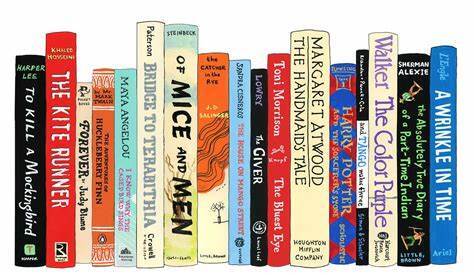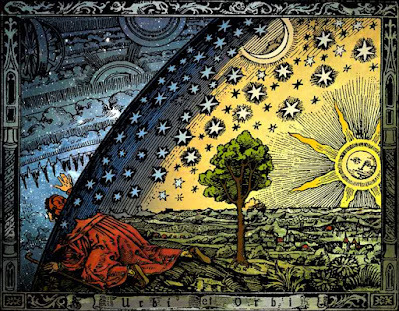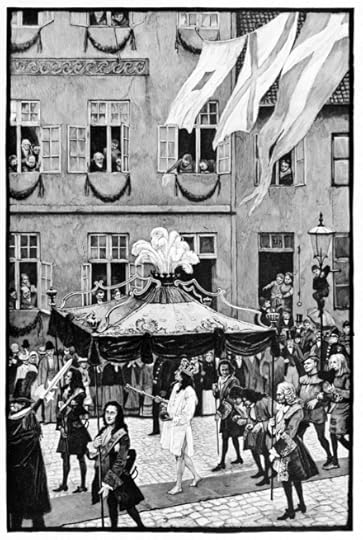Stephen Roney's Blog, page 50
February 23, 2024
Whether People Like It or Not
The leftist commentariat is delusional.
Note this recent panel on CityTV’s Breakfast TV. The host asks whether “the numbers are so skewed now that we’re going to get a new prime minister whether people like it or not.”
Who exactly are the “people” here? And who are “the numbers”?
He then argues that Poilievre is taking a risk in coming out against hormone therapy for minors and allowing males to compete in female sports. He must move to the centre sooner or later or he is unelectable, “no matter what the polls say.”
Is he admitting that Canadian elections are fixed? Or is reality obliged to conform to his will?
Polling shows Canadians are against men in women’s sports by a four-to-one margin—and all four other major parties, Liberals, NDP, Bloc, and Greens, are on record as supporting hormone therapy for minors and men in women’s sports.
Who exactly is not moving to the centre?
How does this math work, that the vast majority of Canadians are “far right” and the centre is on the extreme left?
And why does the commentariat never argue a need for the Liberals or the NDP to move to the “centre”? Why is it only incumbent on the right to do so?
The commentariat said a year go that Poilievre would be a disaster as Tory leader, it was a mistake for the party to choose him, because he was too far right. How was he ever going to “move to the centre,” as O’Toole obediently did? Now look at Poilievre’s polling numbers. Compare them to O’Toole’s.
Either the leftist commentariat are delusional, or they intend to deceive.
They similarly persist in framing the issue as a matter of defending transgender “rights.”
The right to make life-altering decisions as a child, even without parental consent, is not extended to most children—only, as they propose, to supposed “transgenders.”
The right to choose which bathroom to use, or which sex to compete against in sport, or which prison to be sent to if convicted of a crime, is not extended to most of us—only, as they propose, to supposed “transgenders.”
The right to choose which pronouns others may use when speaking of you in your absence has never been extended to most of us—only, now by law in Canada, to supposed “transgenders.” They get to dictate.
These are not rights, but privileges.
Either the leftist commentariat is delusional in calling them rights, or they intend to deceive.
But the same issue arises with the whole concept of “transgenderism.” A man believing he is a woman, or a woman believing she is a man, is delusional. They are disconnected from and in denial of physical reality—that is what a delusion is.
Or else, of course, they are intending to deceive.
I give them the benefit of the doubt: they are insane. Hubris drives people insane. It is the classic trajectory of Greek tragedy, and the downfall is near.
'Od's Blog: Catholic comments on the passing parade.
February 22, 2024
The Phantom Tsunami of Book Bannings in Canada

I am apparently a “free speech absolutist.” Which is what they call anyone these days who believes in free speech.
So when I saw the CBC headline “Calls to ban books are on the rise in Canada,” I thought I’d be outraged by these calls for book banning.
Yeah; no.
What the article calls book banning is actually just restricting access to books in school libraries.
And which books? “Books that deal with sexuality, 2SLGBTQ+ themes or gender diversity.”
In other words, pornography. Books that deal with sexual activities.
Just to begin with, a book is not banned if it is not featured in a library. All libraries are curated.
And a school library is supposed to be curated in the spirit of guardianship, in loco parentis, for the same reason children are required to attend classes and study what the teacher and the curriculum says. Children do not have the right to vote, or to have sex, or to work, or, broadly, to make their own decisions; they are children, and wards. They naturally do not have the right to read whatever they want.
Even for adults, there is a free speech case for censoring pornography. The point of free speech, as John Stuart Mill explains, is to ensure a free and open discussion of ideas, so that truth may be known. Pornography is not exactly heavy with ideas, other than the idea that one should have sex, perhaps unconventional sex. It does not seek truth, is not about seeking truth; it is purely a form of entertainment, like bear-baiting. Which, at best, is lacking in social importance, in the words of an old US Supreme Court ruling. There is no problem with censoring or banning such things.
Surely the only possible point in calling the restriction of pornography in school libraries “book banning” is to trivialize all objections to censorship, and make real book banning seem reasonable. And, when someone objects to any actual book banning, allowing the left to claim hypocrisy, and to say "you want book banning too! You want to ban any books you disagree with too!"
'Od's Blog: Catholic comments on the passing parade.
February 21, 2024
On Standing Up to Bullies

I am what is referred to these days by many as a “war pig.” That is, I endorse military aid to Ukraine. I endorse Israel’s pacification of Gaza.
I believe those who object, saying it is “none of our business,” and we should not be sending money overseas when there are serious problems at home, are being cowardly and selfish.
Remember the parable of the Good Samaritan: we find Ukraine or Israel set upon by robbers and left lying in a ditch. It is our responsibility to help.
Remember Edmund Burke’s caution: “The only thing necessary for evil to triumph is for good men to do nothing.”
Moreover, collective security requires that acts of aggression against anyone not be allowed to succeed. Ensuring that aggression does not succeed is the surest way to ensure peace internationally, just as having a police force is the surest way to ensure peace domestically. We cannot honourably duck our responsibility and hope someone else does it.
I think it likely that the current turmoil in Ukraine has much to do with the disorderly American pullout from Afghanistan, which seemed to signal a lack of resolve.
Suggesting we should not send money abroad when there are needs at home is the fallacy of the false alternative. The one does not necessarily preclude the other.
If those who endorse unilateral pacifism really thought they had an argument, they would not resort to namecalling and would not try to dismiss pro-intervention positions out of hand.
We don’t want war; that’s why we must fight.
'Od's Blog: Catholic comments on the passing parade.
February 20, 2024
My Senior Year of High School
A questionnaire that came over the transom in Facebook:
Your SENIOR year of high school! The longer ago it was, the more fun the answers will be!
1. The year? 1971
3. What kind of car did you have? Stutz Bearcat
4. It's Friday Night Football were you there? Friday had not been invented yet.
5. What kind of job? Hunter-gatherer
6. Were you a party animal? You mean like those pink elephants? I remember the pink elephants.
7. Were you considered a jock? Not Scottish
8. Were you in the Band? Nope. But Robbie Robertson was.
9. Were you a nerd? Not sure. Nobody noticed me, so they did not say.
10. Do you still live in same school district? Never did.
11. Can you sing the school fight song? Fighting was prohibited.
12. What was your school mascot? Me
13. If you could go back and do it again, would you? Only if armed.
14. Are you still in contact with people from high school? Not sure they were people.
15. Do you know where your high school sweetheart is? With him.
16. What was your favorite subject? At the time, sex.
17. Do you still have your High School ring? No. I gave it to her at the root beer stand.
18. Do you still have your yearbook? Yes but I'm not in it.
Hope this helps.
The Synodal Way and the Narrow Way

A prayer intention that I had not heard before was added to the mass this Sunday: “Lord, keep us in communion with the Holy Father, Pope Francis in Rome.”
This is perhaps an indication of the turmoil in the church: schism seems a possibility, perhaps immanent. And if it happens, Francis is responsible. It is he who is stirring things up. The latest word is of a proposed reconciliation with the Freemasons. Whom prior popes stretching back centuries supposedly simply misunderstood.
Good Catholics do not know which way to turn. If good Catholics are now to believe that the popes and councils prior to Francis got it wrong, how can we have confidence that Francis has it right? On what authority?
“The blizzard, the blizzard of the world
Has crossed the threshold and it has overturned the order of the soul”
I have no sense that the local bishop, or the local priest, are particularly traditionalist. Some parishioners clearly are. The weekly bulletin dutifully reports on the synod on synodality in the same terms used by the Vatican. It calls for a “listening church,” seeking to know what the Holy Spirit wants. And reports that two representatives from the parish will be sent to a new regional synodal confab in March.
Given that there is a continuing need to know what the Holy Spirit wants, that the Holy Spirit has perhaps changed His mind on something, how does one discern what the Holy Spirit wants? How does one listen to the Holy Spirit?
The path is well known and marked. It does not have to do with meeting in groups. In such groups, one is not listening to the Holy Spirit. The voice of the Spirit is there drowned out by human voices. One goes out into the desert, alone. Or to the monastic cell.
Abraham did not hear the voice of God by listening to the polytheists around him, but by breaking away from them, packing his bags and leaving Ur. Noah likewise; his neighbours no doubt thought him mad. Lot likewise; he was not even to look back on the cities of the plain. Moses likewise; he met God in the desert, as a fugitive. Elijah or Isaiah likewise; John the Baptist likewise.
The synodal way of breaking into small groups to discuss topics for three minutes each, is not listening to the Spirit, but to the world.
'Od's Blog: Catholic comments on the passing parade.
February 19, 2024
They Can't All Be Right
 Bahai Temple, meant to express architecturally the concept that "all religions are one."
Bahai Temple, meant to express architecturally the concept that "all religions are one."One line of attack beloved by atheists is to point to the multiplicity of religions, and argue that since at a minimum all but one must be false, the obvious and only rational conclusion is that they are all false.
Most people are Christian, they will go on to say, simply because their parents were Christian. They have no better reason. Were they born in India, they would be just as certain that Hinduism was true; born in Japan, they would be Buddhist; in Egypt, Muslim.
Perhaps fair—for those who are only nominally religious. For those who are actually religious, the question is never whether you are Christian or Hindu, but whether you are devout.
But why limit this argument to religion? There are a multiplicity of governmental systems. Aside from liberal democracy, there is absolute monarchy, Communism, Fascism, oligarchy, aristocracy, military junta, anarchy, dictatorship, syndicalism, and so forth. All but one of them must be wrong. So the obvious conclusion is that they are all wrong. Most people in Canada or the US believe in liberal democracy only because they happen to live in a liberal democracy, and do not know any better.
Somehow, when applied to anything other than religion, this argument does not sound convincing. We do, most of us, feel confident that we have all the information necessary to make an objective judgement on any other matter: for example, that liberal democracy is the best of these systems. Others, of course, may opt for one of the others.
The argument works only if you start from the presupposition that religion is false.
And perhaps from the false presupposition that “no religion” is an option. Just as “no government” is not a realistic option, we cannot really live without some rules imposed on our behaviour. That is what “religion” means: a “binding.” We need, in the end, to have a purpose. “Atheists” simply find their purpose in some god they do not call God: “Nature,” or “Science,” or “Psychology,” or Marxism and dialectical materialism, or Freudianism, or Ecology, or Climate Change, or Evolution. Or self.
The question is whether their formulation is better than any of the traditional ones.
There is, after all, far greater consistency among conceptions of God as Yahweh, Allah, Brahman, Gitche Manitou or Ahura Mazda, mostly only the words for “personal supreme being” in different languages, than there is among the various faiths and gods worshipped by atheists.
They can’t all be right.
'Od's Blog: Catholic comments on the passing parade.
The Ghettoes of Avonlea

Parks Canada has a new ten-year plan to revamp Green Gables to present “cultures not currently presented at the site, e.g., Acadian, BIPOC (Black, Indigenous and people of colour) … and new narratives, perspectives and voices.”
This is an example of real cultural appropriation. Anne of Green Gables, a cornerstone of Canadian culture, is being hijacked to present instead random ethnic subcultures not relevant to the story, that do not appear in the books.
This is as offensive as if, say, the recreated Huron village at Ste.-Marie-Among-the-Hurons were staffed by interpreters dressed as Anne, and the longhouses featured tableaux from Avonlea. It is disrespectful of this aspect of our shared Canadian culture, and seems to want to detract from it. It seems to want to make it something foreign to our own experience.
Anne seems still to be shunned because of her red hair. Gingers are still discriminated against; probably more than ever.
'Od's Blog: Catholic comments on the passing parade.
February 18, 2024
Death and Renaissance

My daughter’s history text suggests the primary cause of the Renaissance was the Black Death. The logic goes that this catastrophe shook people’s faith in Divine Providence, prompting a turning away from religion to a new, more humanist perspective.
There are two problems with this argument. First, in troubled times, people run towards religion, not away from it. “There are no atheists in foxholes.” People rarely renounce belief in God on their deathbed. Second, the Black Death swept through Asia as well as Europe. Why did the Renaissance happen in Europe, not in India or China or the Middle East?
Britannica suggest the Black Death actually retarded the Renaissance: people preoccupied with dying and caring for the dying had less time, logically, for study, trade, the arts, or philosophical speculation.
So what does account for the Renaissance?
The trade along the Silk Road may have something to do with it: new ideas as well as spices travelled from China to Europe by this route. However, this does not work: the Silk Road was in operation already in pre-Roman times. Moreover, if the mixing of cultures was the key, why didn’t the Renaissance happen in Central Asia? Being equidistant from each terminus, it got the most mixing of cultures and ideas. And Europe would have gotten no more than China.
Some suggest that contact with the Levant due to the Crusades did it; some suggest it was the fall of Constantinople to the Turks, which forced Eastern scholars to flee west.
But that contact of two cultures had been going on since the seventh century, in Spain as well as in the Levant, and all around the Mediterranean basin. Contact with Islam was nothing new to the 14th century. And it leaves no reason for the Renaissance to happen in the Christian rather than the Muslim lands: the Crusades surely prompted a similar flight of Muslim scholars east, and Muslims would have garnered roughly as much from Christian culture by taking Constantinople, Egypt, Spain, and Asia Minor as the Christians did of Muslim culture by taking Jerusalem and the Levant.
Which leaves the invention of the printing press and movable type. This must have made the crucial difference.
Movable type had already been invented, independently, in China and Korea. However, there it was not used for wider circulation of ideas, but to ensure accurate reproduction of the sutras, the core religious texts. In the West, Gutenberg did not stop at the Bible. It was used to more widely disseminate writings in general. Hence, new ideas.
Which leads to the next speculation: if movable type, making books more widely available, led to the Renaissance, what can we expect from the Internet and the World Wide Web?
They are a vastly greater revolution in the dissemination of ideas and information; on a par, perhaps, with the invention of writing itself.
'Od's Blog: Catholic comments on the passing parade.
February 17, 2024
The Emperor's New Clothes

In teaching “The Emperor’s New Clothes,” as a way to introduce Western thought to an Asian student, pulled some materials from the web. They identify two themes: “pride can make you do foolish things,” and “children always tell the truth.”
An example of how putting truths in parable form means only “those who have ears to hear, hear.”
Whoever extracted these lessons from the story obviously saw it from the point of view of the emperor. I suspect this identifies them as a narcissist. And this first moral is indeed the lesson they needed to learn: pride is their chief fault.
But as for the second supposed moral, “children always tell the truth,” this suggest someone incapable of seeing children as human beings.
This would indeed be consistent with narcissism. Narcissists see their children as pets, as toys, and will either decide they are perfect, little lapdogs to be pampered, or make them scapegoats, vermin, bad no matter what they do.
In Andersen’s story, only the emperor is clearly driven by pride. Those in the crowd are more plausibly driven by humility—of course they cannot see the fine clothes, they are not worthy, but they are not going to contradict their betters who can.
That this commentator cannot imagine from their point of view again suggests narcissism.
The moral of the story is to think for yourself, and not be easily influenced by those around you. To avoid what Francis Bacon called “the idols of the tribe.”
Narrow is the gate that leads to salvation.
'Od's Blog: Catholic comments on the passing parade.
February 16, 2024
Rivers of Blood
The current season of the British series “Call the Midwife” brings us up to 1968, and Enoch Powell’s famous “Rivers of Blood” speech. Of course, all the sympathetic characters we have come to know and love on the series are immediately opposed to this supposedly racist and anti-immigrant sentiment.
I have a problem with this. A Gallup poll at the time showed 74% of Britons agreed with Powell—that is an overwhelming consensus in polling terms. Even 47% of immigrants agreed there needed to be more restrictions on immigration, against 30% who disagreed.
Apparently it was the press and the politicians who decided the speech was a problem. Do we believe them without looking for ourselves?
Powell himself predicted this reaction in his speech: “people are disposed to mistake predicting troubles for causing troubles and even for desiring troubles: ‘If only,’ they love to think, ‘if only people wouldn't talk about it, it probably wouldn't happen.’"
Are we to believe that all good people would see the speech as reprehensible? And so that that almost all Britons living at the time were not good people?
This seems racist.
It is necessary to hear their side; to hear what Powell said.
Powell was not saying there was anything wrong with immigrants, or even that British culture was superior. A racist would have said at least this much. His objection was to mass immigration from a distinctly different culture; because this meant the immigrants would not assimilate. “Their numbers and physical concentration meant the pressures towards integration which normally bear upon any small minority did not operate.”
This can be misrepresented by quotation out of context; and he does use language that was not then, but is now, considered offensive, like “piccaninnies.” But these are pickled red herrings.
“Now,” Powell concludes, “we are seeing the growth of positive forces acting against integration, of vested interests in the preservation and sharpening of racial and religious differences, with a view to the exercise of actual domination.”
We have indeed seen exactly that since, with the growth of the doctrine of “multiculturalism.” Cynical politicians are manipulating ethnic communities to elicit block votes.
This, Powell warns, was only likely to lead to strife among distinct ethnic ghettoes living in close proximity, seeing themselves as having competing interests. Hence his image of “rivers of blood” in the streets.
Which we seem to be witnessing now.
'Od's Blog: Catholic comments on the passing parade.



